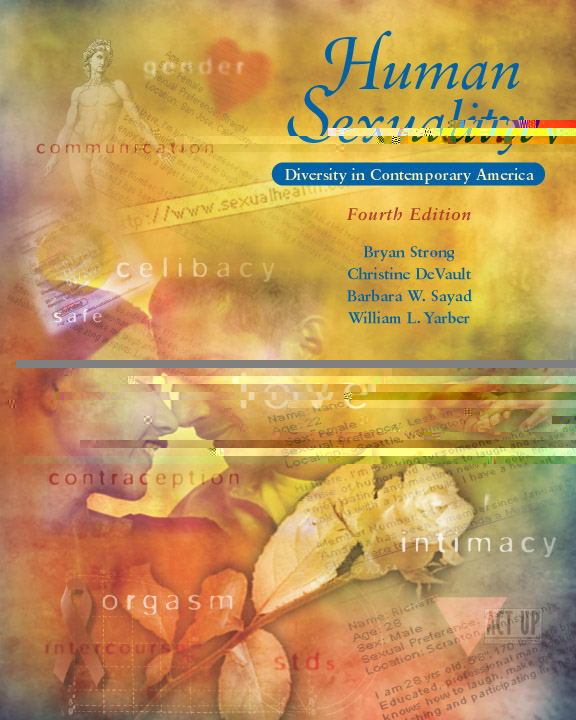 |  Human Sexuality: Diversity in Contemporary America, 4/e Brian Strong,
University of California, Santa Cruz
Barbara Werner Sayad,
California State University, Monterey Bay
Christine DeVault,
Cabrillo College
William Yarber,
Indiana University
Studying Human Sexuality
Sexuality Links Chapter 2Studying Human Sexuality
LINKS TO GET YOU STARTED
| The Science of Sex: What Is It and Who's Doing It?
(http://math.ucsd.edu/~weinrich/theScientist2.html)
"If sexual activity is a prickly issue for discussion in society and our daily lives, it appears no less so as a research topic in some areas of the scientific and medical communities. The very definition of the word sex seems troublesomely elusive for many researchers when it comes to classifying their investigative efforts and obtaining the funding to support them." This web site presents some ideas about doing research on sexuality. |  |  |  | Research Methods in Human Sexuality
(http://144.96.241.156/Eastman/153/ResearchMethodsinSexuality.htm)
"How do we behave sexually?" This is a difficult question to answer. This web site suggests some ways to design this type of research. |  |  |  | Midwest Institute of Sexology
(http://www.mwsexual.com/sex-research-surveys/2-sexual-fantasies.htm)
"The Midwest Institute of Sexology is actively engaged in anonymous, scientific sex research surveys for which we need your help." If you are interested, participate in one of the studies presented here. |  |  |  | Web Links for Human Sexuality Research, Gay/Lesbian/Bisexual/Transgender Resources
(http://www.teleport.com/~skerlin/humansxl.html)
The links on this web site "are to sites that facilitate a research focus into matters pertaining to human sexuality, gay, lesbian and bisexual issues, and interpersonal sexual relationships. For use by adults age 18 and over as a scholarly resource, these links have been selected for their therapeutic and educational benefits to professionals specializing in sex education and the fields of sexology, sociology, and psychology." |
|



 2002 McGraw-Hill Higher Education
2002 McGraw-Hill Higher Education